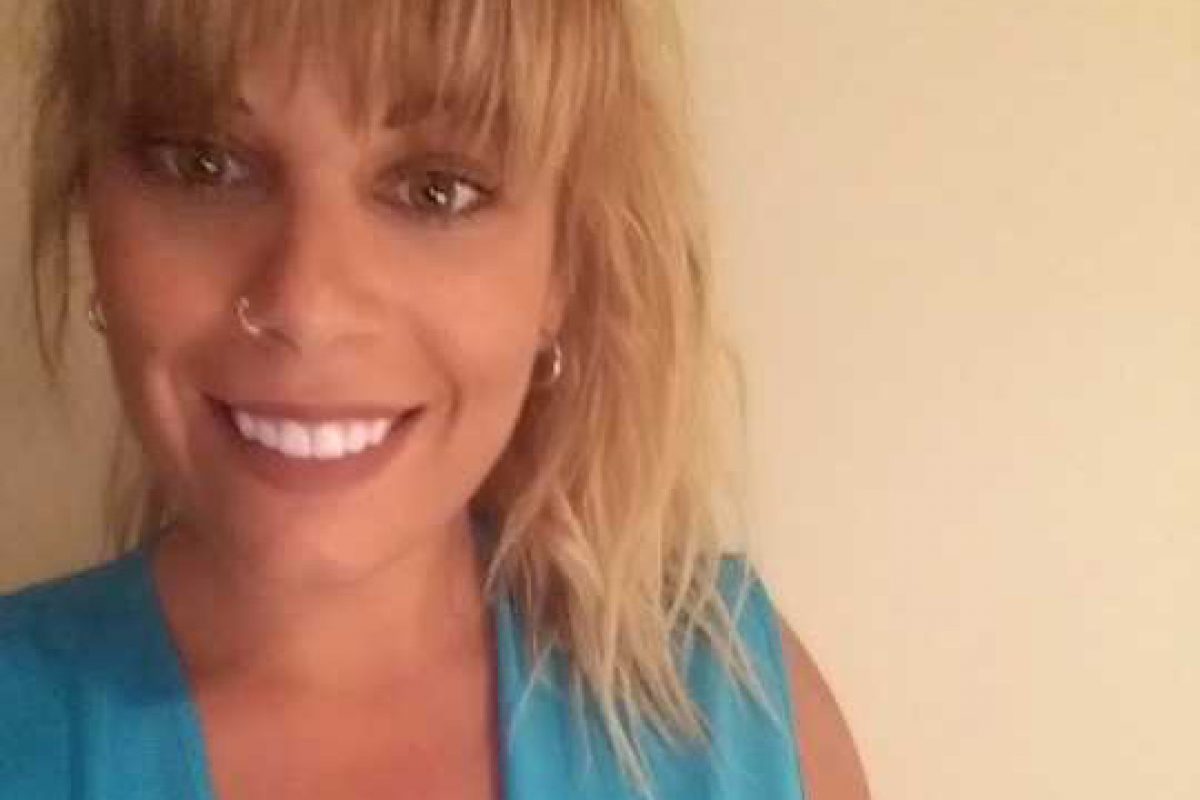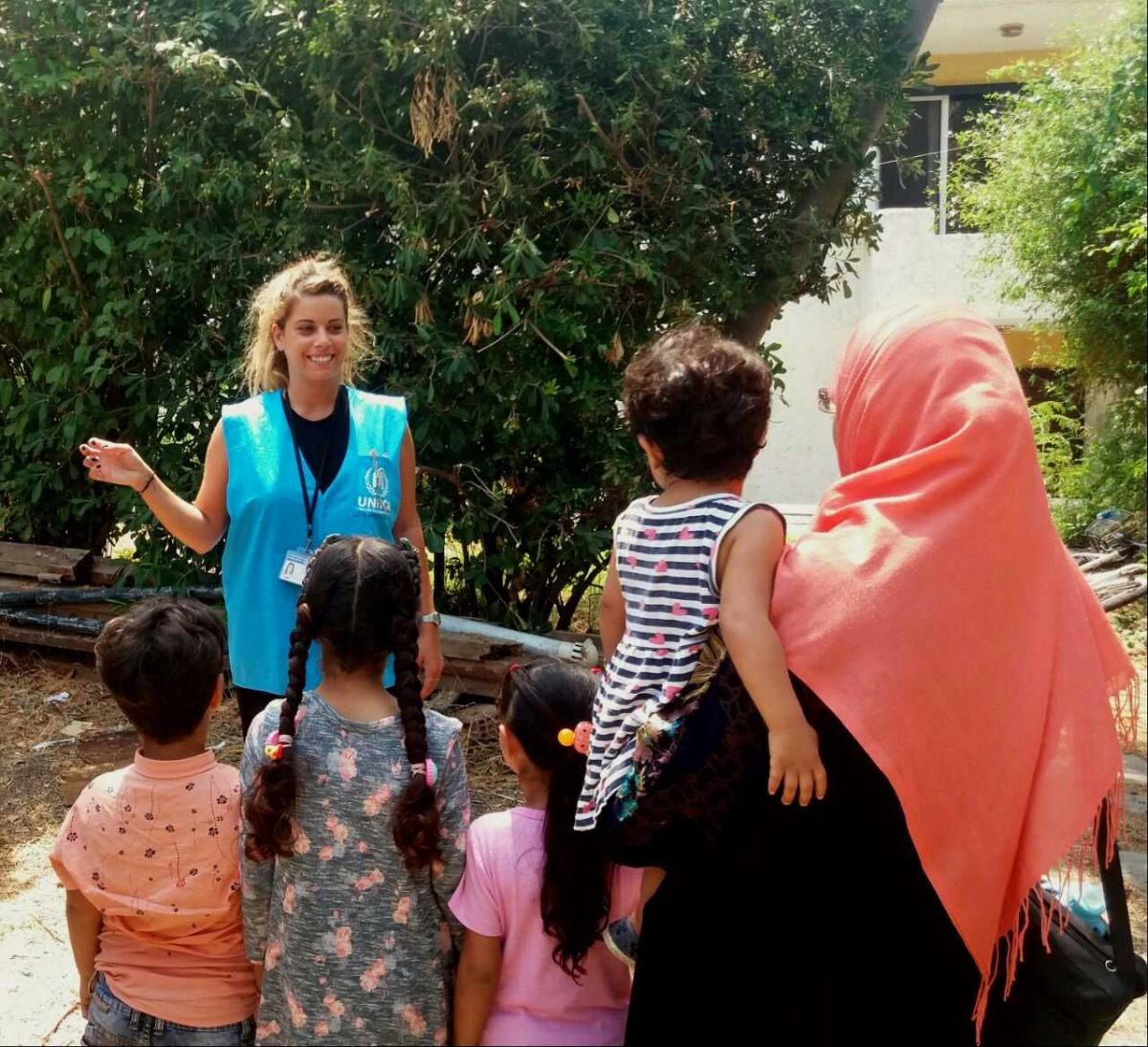Kos Island Continues to Offer Glimmers of Hope to Refugees Amidst Earthquake Chaos

Whilst several Western countries have been reluctant to increase their refugee intake beyond urgently needed levels, migrants and refugees continue to arrive on Greece’s shores, placing a major strain on the country’s reception facilities.
Anastasia Daviou, from Athens, serves as an ICMC Associate Protection Expert in Kos island, with UNHCR Greece. Since 2010, ICMC has deployed qualified experts to assist UNHCR in providing support to the Greek asylum system, including in Kos, located very close to the coasts of Turkey.
With a background in communications, media and culture studies, Anastasia has been working as a focal person to facilitate housing accommodations for incoming refugees. This is her first field experience in humanitarian service.
“Every day I am in the field assisting with arrivals and reception of migrants and refugees,” Anastasia relates. “They can’t leave Kos until they are allowed to do so, based on the Greek asylum law. Once they get permission to move forward, UNHCR allocates apartments on the mainland to registered refugees. My job is to facilitate this transition.”
Most refugees fled Afghanistan, Kuwait, Syria, Pakistan and Tunisia and embarked on a long journey by boat to reach Kos. They are often stuck in a “limbo-like” situation, hoping to hear soon whether they will be granted asylum and thus allowed to settle in Greece or somewhere else in Europe. Refugees usually are seen at the asylum office for one interview, albeit a very long one, and some cases have been waiting for almost a year.
The hotspots of Kos, centers for the reception, identification, and processing of asylum seekers and migrants, are continuously repopulated with new arrivals and departures to the mainland. During summer, weather conditions are particularly favorable, encouraging life-risking journeys to be undertaken by the refugees. During a one-week period, as many as 70 individuals may reach Kos in search for protection. Approximately 500 refugees currently live in hotspots around the island, while 100 are housed in the 37 UNHCR-managed apartments located in Kos.
Anastasia confesses the joy shared with refugees once they are informed that asylum has been granted and they can now leave Kos. “They invite you over for treats, and try to give back and express their gratitude in every way they can”. On the departure day, Anastasia accompanies registered refugees to the port. Once in Athens, the staff and interpreters pick the refugees up and accompany them to their assigned accommodation.
Kos is home to a hospitable local community, which is currently facing the serious aftermath of a 6.5 magnitude earthquake that rocked the island on 21 July, leaving two killed and several people injured.

“I was sleeping, and when I realized there was an earthquake, I immediately went to the door but I had locked myself in before heading to bed. Due to a sudden blackout, I couldn’t find the key anymore” Anastasia continues. “I thought this is it. The end of it.”
Luckily, she managed to escape from her apartment. During the weekend, she camped with her fellow colleagues on the beach. On Monday, with the support of her colleagues in Athens, she managed to secure a hotel room to finally rest in a calm setting.
The morning following the earthquake, the UNHCR Head of Office called the director of the hotspot to confirm that all refugees and staff members were safe. All hotspots were quickly patrolled, and interpreters checked on each one of the 37 apartments whilst specialists were inspecting the damages in the facilities. Refugees were rather unshaken by the event, labeling it only a “light incident” compared to the bombing and shell attacks they had faced back home.
Anastasia soon learned about the special situation of a Syrian refugee woman, partly disabled due to a chronic disease. The elevator in her building was no longer functioning as a result of the earthquake; this made it impossible for her to live in the assigned apartment in Kos. The staff soon mobilized to secure a more accessible accommodation for her. The young lady and her husband were assigned to a new apartment in Athens within two days after the earthquake.
Kos is still undergoing several major aftershocks, almost a month after the event.The local community has been living in fear and uncertainty; ancient buildings, once major tourist attractions, were partially or completely damaged.
Anastasia learned firsthand the impact of helping someone to move on when she herself felt extremely frightened by the earthquake. “It was only after my colleagues and I faced homelessness ourselves that we fully understood what it was like for refugees to leave behind their homelands and life-time belongings,” she affirms while stressing she still finds it hard to fall asleep.